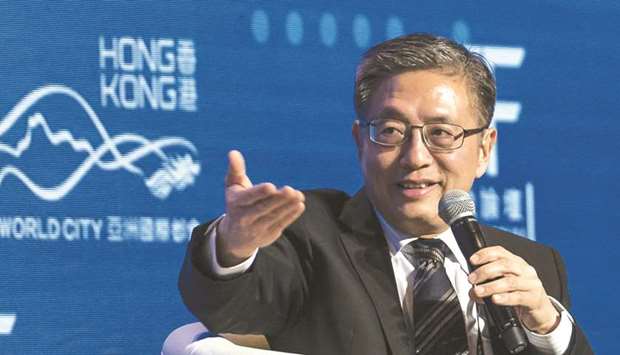China Investment Corp, which recently sold its shares of Blackstone Group, is seeking to boost alternative and direct investments to 45% or more of its overseas portfolio in the next three years, from about 38% at the end of last year, president Tu Guangshao said in an interview in Beijing.
The divestment of the Blackstone stake, one of the first investments for the wealth fund that was started in 2007 with an initial $200bn, may signal CIC’s pursuit of steadier returns. It ends a wild ride for CIC – Blackstone shares plunged 89% from the US firm’s IPO to a February 2009 trough, but have since surged almost nine-fold.
A CIC spokeswoman said the Blackstone investment produced a “positive return,” and that the move was based on “changes in market conditions and our portfolio management needs.” Blackstone’s chief executive officer Stephen Schwarzman said in a Bloomberg Television interview that CIC’s investment in his company lasted longer than expected.
The divestment doesn’t mark a break between CIC and the firm; it is an investor in funds run by New York-based Blackstone and CIC’s spokeswoman said the two are “working together in areas including private equity, real estate funds, co-investments, direct investments as well as hedge funds.” And in its biggest direct investment, CIC last year led the $13.8bn acquisition of Blackstone’s European logistics business Logicor.
Trade tensions between China and the US have intensified in recent weeks, as President Donald Trump has ordered stiff tariffs on steel and aluminium, and signalled more actions are on the way.
Even as trade friction between China and the US is rising, Tu said the wealth fund still wants to explore direct investments in the US, which can also help deepen economic ties. Most of CIC’s existing private equity partners are American firms, he noted, without being specific.
“It’s a very good thing to do, but sometimes even good things are hard to accomplish,” Tu said, citing the bilateral funds CIC has been working on that he said can help reduce resistance, if any, in the target markets. “A lot of work still needs to be done before consensus is formed,” he said without elaborating.
Here are some more highlights from the interview with Tu:
Alternative and direct investments could rise to 40% of overseas investments by the end of this year. CIC will boost alternative investments by increasing allocations to some top-tier investment firms that it has built good long-term relationships with, especially those that it can co-invest with, Tu said, without naming companies.
The company will also maintain “stable growth” in its real-asset portfolio such as infrastructure and logistic properties, he said. Public securities will remain a major part of its portfolio, even though CIC will reduce the share of its holdings in public securities.
It’s also seeking to be a “more active shareholder” in key investments by buying larger stakes and working more closely with management, Tu said. It will focus on industries such as health care, infrastructure and technology, media and telecommunications.
“While the share of public market investments will fall gradually, it’s not a completely passive decline,” Tu said. CIC and Goldman Sachs Group in November announced a joint $5bn fund to invest in the US manufacturing industry. CIC is in discussions with UK partners for a bilateral fund, Tu said, without elaborating.
The fund is considering selling bonds to access more capital, Tu said. Bond sales “in the future can be a channel we could consider to broaden our funding sources,” he said.
Even without a bond sale, CIC is still capable of pulling off large acquisitions like the Logicor deal, given its cash reserves and access to external funding, Tu said. “If there’s again a deal of such size, which is suitable and we think is worth investing, we still have the capacity,” he said.

